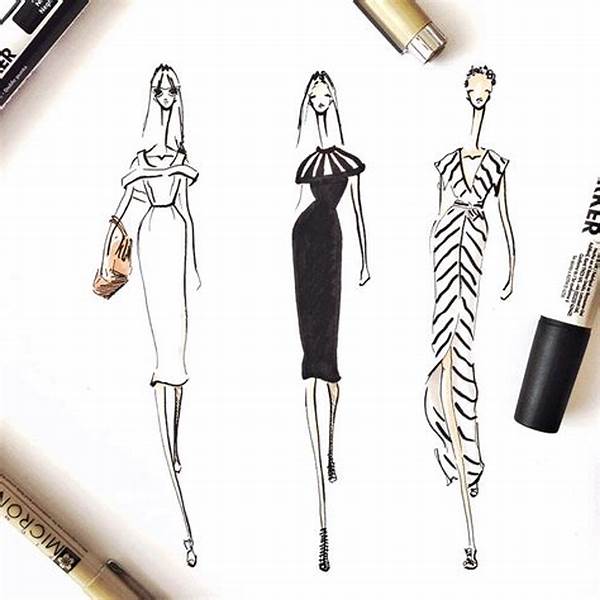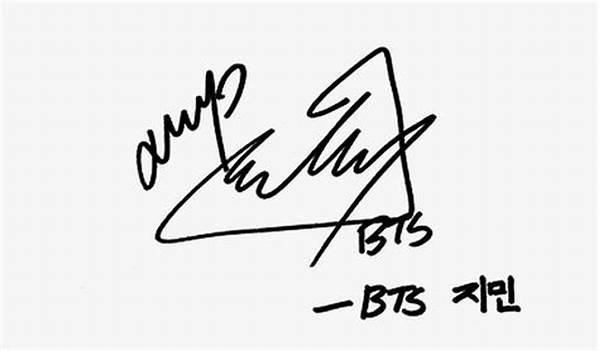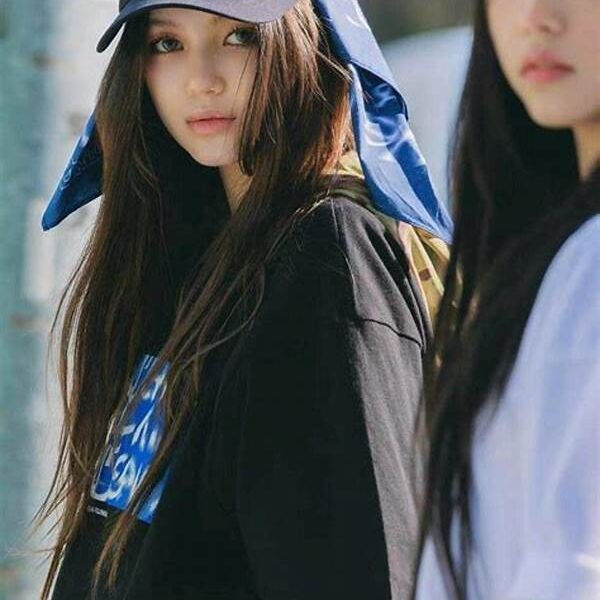Hey there, budding artists! So, you’ve decided to dive into the fabulous world of fashion illustration—how exciting! Whether you’re dreaming of sketching for Vogue or just want to create some killer designs for Instagram, you’ve come to the right place. Let’s unravel some fashion illustration tips for beginners that’ll have you strutting your stuff on paper in no time.
Read Now : Stylish Commuter Fashion Touches
Getting Started with Fashion Illustration Tools
Before you dive headfirst into creating your first fashion masterpiece, you’ll need to gather your tools. It’s like before you cook a meal—you gotta have the ingredients on hand. The basic fashion illustration tips for beginners start with: acquire a quality sketchbook (heavyweight paper is a good choice), a set of colored pencils, markers, and fine nib pens. You don’t need the most expensive supplies, just ones that feel right to you. The right tools can ignite your creativity and help you experiment with different textures and shades. Don’t forget a good eraser, because let’s be real, everyone makes mistakes. It’s part of the process. The best part? Over time, you’ll find which tools you love the most and which style suits you—and this journey of discovery is half the fun.
Once your toolkit is ready, think about your drawing space. Whether it’s a cozy corner in your room or a spot next to the window for some natural light, having a dedicated space helps set the mood right for creativity. Now, you’re all set to sketch those dreamy silhouettes!
Understand Proportions and Anatomy
Exploring Colors and Fabrics
So, you’ve got your proportions sorted, and your pen is poised to bring your fashion dreams to life. But wait—let’s talk colors and fabrics! One fantastic aspect of fashion illustration tips for beginners is experimenting with hues and textures. The world doesn’t always wear black and white, even if Chanel might have something to say about it. Play around with color palettes and see what sets your heart racing—whether it’s the fiery reds that scream passion or the cool blues that calm the soul.
Get inspired by the world around you. You’d be surprised at how a walk in the park or a trip to the local cafe can spark a new idea for a fabric or design—it’s all about keeping your eyes open and your mind receptive. As you blend colors, think about how different fabrics behave. A flowing chiffon might drape delicately, while a structured denim holds its own in stark form. Practice illustrating these diverse textures to add depth and realism to your work.
Mastering Your Personal Style
Finding and mastering your personal style in fashion illustration is like discovering your unique voice in art. It’s one of the cooler fashion illustration tips for beginners because it involves a lot of exploration and play. You might start by imitating styles you admire, and that’s totally okay! Whether it’s the whimsical flourishes of a Japanese manga artist or the sleek modernism of a renowned fashion illustrator, all these elements can contribute to your own style.
As you grow, you’ll find yourself naturally gravitating towards particular approaches. Just remember, the key is patience and continuous practice. Your art will evolve as you do, and soon it’ll be instantly recognizable as yours, a signature only you possess.
Building a Portfolio
You’re itching to show the world what you’ve got, right? Building a killer portfolio is essential to give your work the spotlight it deserves. Consider the following fashion illustration tips for beginners: curate your best pieces that reflect not just your skillset but also your evolving style. Quality over quantity is crucial. You’re not only showcasing technical abilities but also your creativity, imagination, and innovative concepts.
When displaying your work, think about organization—how your pieces flow from one to another. Group them by theme, color palette, or style. It’s much like storytelling where each piece is a part of the larger narrative. Remember also to update your portfolio regularly. As you progress and your style evolves, keeping your portfolio current with your freshest work is key.
Read Now : Korean Pop Concert Fashion
Navigating Trends in Fashion Illustration
Navigating the ever-changing world of fashion trends can be dizzying, but it’s also an exciting part of being a fashion illustrator. For beginners, understanding and playing with trends can provide a thematic structure to your work, or even just an inspiring starting point.
While it’s important to stay updated, remember not to lose your style in the frenzy of trends. Trends should complement, not overpower, your personal touch. Adapt them to suit your voice and vision. Whether it’s the resurgence of 90s grunge or the minimalist vibes that are in, take what resonates most and infuse it with your unique twist. The aim is to create illustrations that feel fresh yet authentically you.
Finally, remember, trends ebb and flow but the core essence of your art remains. Keep learning and evolving with an open mind. Your unique interpretations could someday set a trend of their own!
Conclusion
In summary, the journey into fashion illustration is filled with opportunities for creativity and personal expression. Armed with fashion illustration tips for beginners, you’re on the brink of creating art that not only visualizes garments but also encapsulates the spirit of style.
Whether it’s choosing the right tools, mastering proportion, or refining your color palette, each step is a brushstroke towards a masterpiece. Stay curious and inspired, continuously exploring the trending pulse of fashion while maintaining your personal touch. Fashion illustration is more than just drawing—it’s about telling a vibrant story with every line and hue. So go ahead, create, express, and perhaps even start a new trend with your art!


